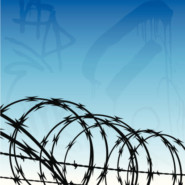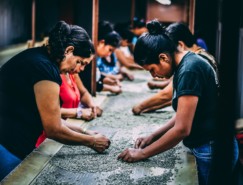Posted on 25 Oct 2013
The recent launch of the Global Initiative on Transnational Organized Crime, held in New York on 19 September, featured a debate on how organized crime contributed to state fragility, and undermines democracy and development.
The discussion noted that criminal groups often have an unprecedented legitimacy with the communities in which they are based, due to the services they provide that the state does not. James Cockayne, UN University head of office and Global Initiative Network member, spoke about situations where working with criminals could pay off. In some fragile states and communities, criminal groups often have more legitimacy than state authorities, since they are often better able to deliver goods and services to people, he argued. “We need to recognize that some criminal groups may be sources of social capital which could strengthen the state,” he said, but added that it would be naïve not to be aware of the inherent moral dilemmas and risks involved, such as negating victims’ rights or inadvertently strengthening the hand of the criminals themselves.
Read more on this discussion in a recent article published on the UN Humanitarian News Service, IRIN: “Making crime pay – the development role of gangsters” or download the full conference report of the launch discussion, which also featured Sarah Cliffe, author of the World Development Report 2011, and Vidar Helgesen, Secretary-General of International IDEA.
_______________________
Negociar con delincuentes: ¿una estrategia sólida para contraatacar la delincuencia organizada?
En el lanzamiento de The Global Initiative contra la delincuencia transnacional organizada en Nueva York el 19 de septiembre, se debatió sobre cómo la delincuencia organizada contribuye a la fragilidad de los estados y socava la democracia y el desarrollo.
En la discusión se señaló que los grupos delincuentes suelen tener una legitimidad sin precedentes en las comunidades en las que están localizados debido a los servicios que ellos proveen y que el estado no ofrece. James Cockayne, director regional de la Universidad de la ONU y miembro de la Red de Global Initative, habló sobre ciertas situaciones en las cuales trabajar con criminales puede valer la pena. Argumentó que en algunos estados y comunidades frágiles, los grupos criminales suelen tener más legitimidad que las autoridades estatales ya que a menudo son más capaces de estregar bienes y servicios a la gente. “Necesitamos reconocer que algunos grupos de delincuentes pueden representar fuentes de capital social que podrían fortalecer el estado”, dijo, y agregó que sin embargo sería muy inocente dejar pasar los dilemas morales y riesgos implícitos, como negar los derechos de las víctimas o fortalecer involuntariamente las herramientas de los propios delincuentes.
Pueden leer más sobre esta discusión en un artículo publicado recientemente en IRIN, servicio de noticias sobre asuntos humanitarios de la ONU: “Making crime pay – the development role of gangsters” o pueden descargar el informe completo de la discusión en el lanzamiento de Global Initiative que también tuvo como invitada a Sarah Cliffe, autora del Informe de 2011 sobre Desarrollo Mundial, y a Vidar Helgesen, Secretario General de International IDEA.



